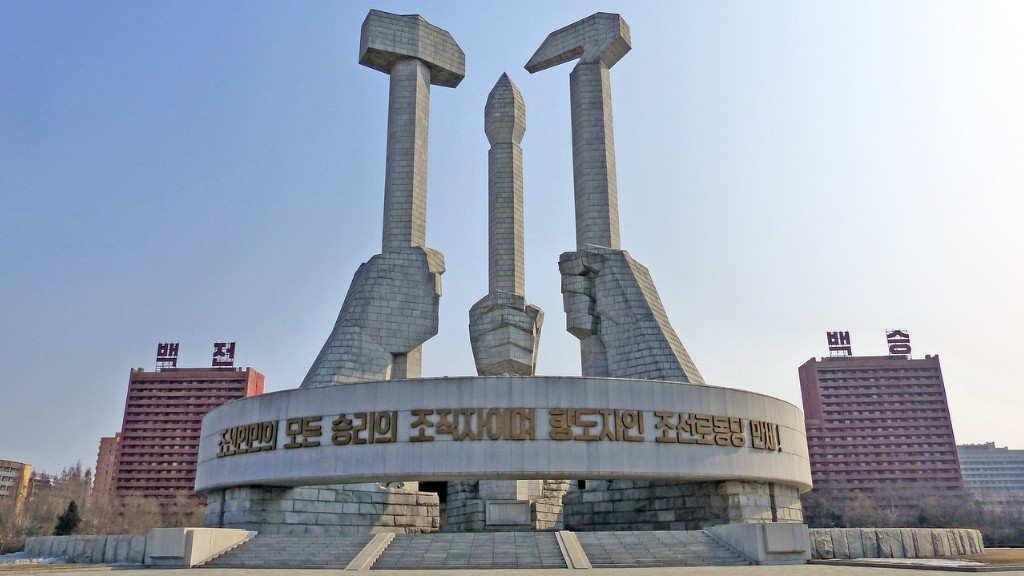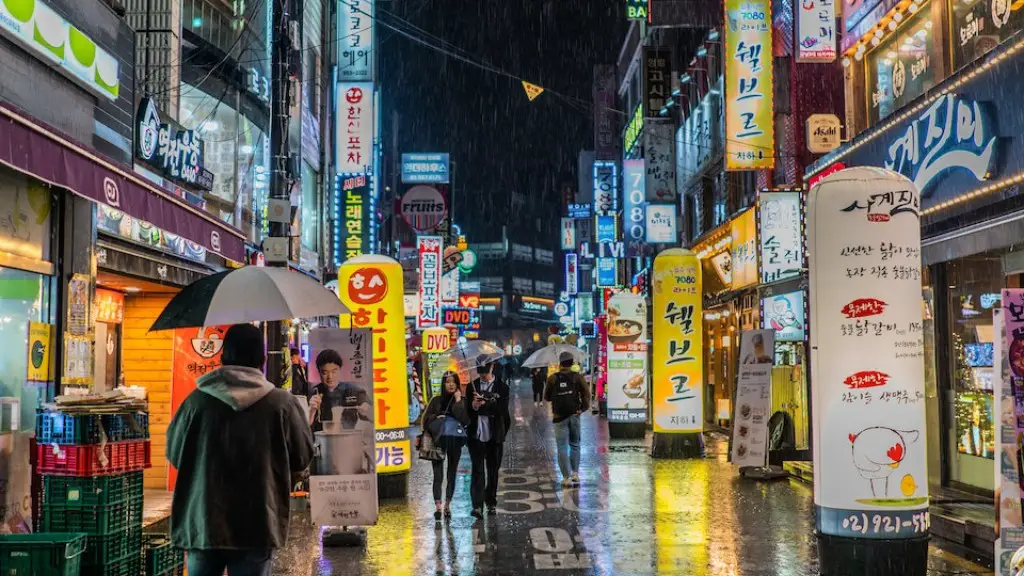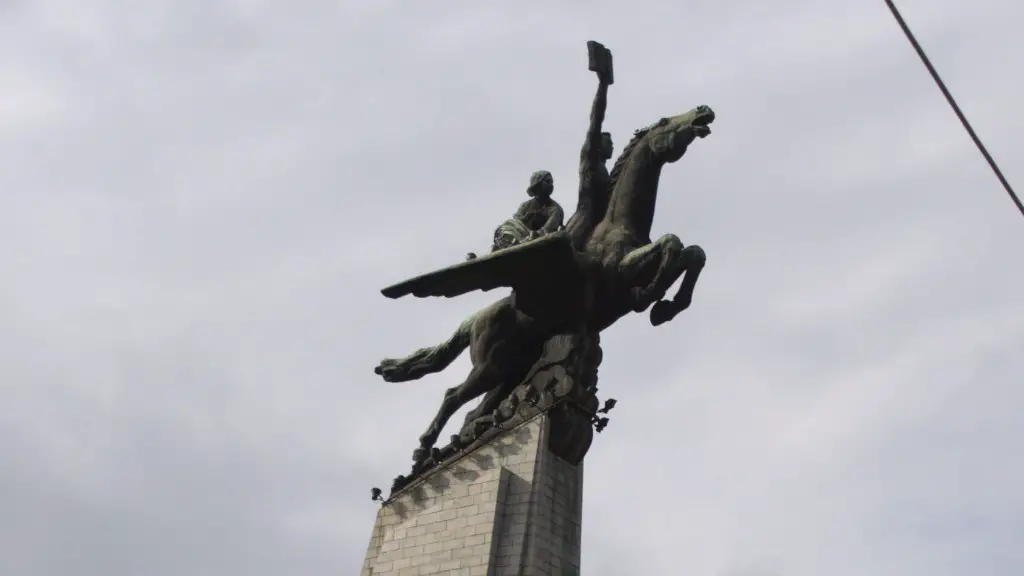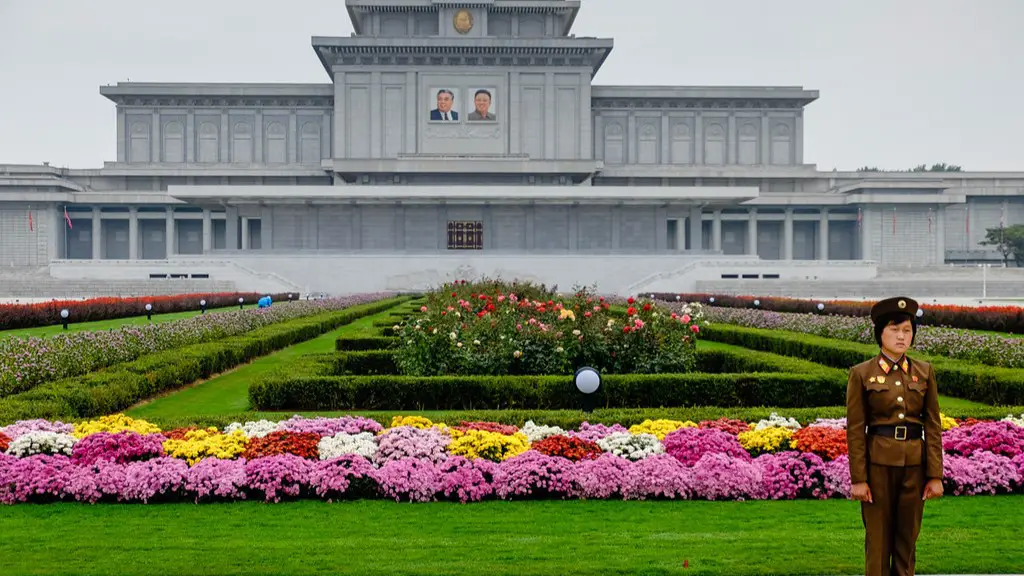North Korea’s Providers
Recently, the US government has placed a series of heavy sanctions on North Korea due to the country’s aggressive nuclear weapons testing. Despite the restrictions, many countries are still supplying North Korea with goods and services that can help the North Korean economy and enrich the nation’s leadership.
For years, the main supplier of North Korea has been China. Between 2016 and 2019, it has been estimated that China makes up between 70-90% of North Korea’s total imports. This includes fuel, food and technology essential for North Korea’s construction projects. In addition, China also supplies North Korea with much of its military equipment and ammunition. Some experts believe that the reason for such substantial trade ties between China and North Korea is due to China’s major geopolitical ambitions. China desires to maintain a strong relationship with North Korea as a way to increase its and its allies’ power and influence in the region.
Another significant provider to North Korea is Russia. Russia has become an important source of oil and fuel for the country, and has also provided financial assistance to North Korean companies for the purchase of equipment and raw materials. Additionally, according to the UN, Russia has increased its import of North Korean seafood and textiles, as well as increasing its exports of fuel, vegetable oil, and grain.
In addition to the previously mentioned countries, The United Arab Emirates and India have also been linked to North Korea. Despite the sanctions, between 2016 and 2017, the UAE has sent North Korea stationery, sporting goods, electrical appliances, aircraft and ships. Meanwhile, Indian companies have provided North Korea with fertiliser, engine oil and chemicals, although this has dwindled in the last few years due to sanctions.
It is believed that North Korea is unfairly exploiting the loopholes in the UN-backed sanctions to access goods from countries all over the world. One such case is the proliferation of North Korean vessels that transport sanctioned coal and fuel. These ships often falsify their flags and ownership to avoid being tracked, as countries are expected to report any suspicious sea vessels.
Despite the UN-backed sanctions, North Korea is still able to access goods and services from many countries around the world. The Chinese government has maintained strong ties with North Korea in order to further their geopolitical ambitions, while Russia has continued to provide the county with oil, fuel and financial assistance. Furthermore, the UAE and India have provided North Korea with stationery, sporting goods and fertilisers, while North Korea’s vessels are being used to transport coal and fuel. Many of these deals are conducted through international networks of trading companies and brokers, making it difficult to completely cut North Korea off from global trade.
Financial Support
In addition to the physical goods, North Korea also has access to much-needed financial resources from foreign banks. For example, Chinese banks have opened accounts for North Korean state-owned companies, with the funds reportedly being used to purchase luxury items for North Korea’s leader, Kim Jong-un.
Similarly, the Bank of Russia has provided North Korea with a loan of up to $25 million, although there have been no signs of where the money was spent. North Korean companies have also been found to have accounts in the Baltic state of Latvia, with these funds being routed to other countries, supposedly to evade sanctions.
In addition to banks and financial institutions, North Korea is also said to have obtained much-needed funds from illicit activities such as the smuggling of drugs and weapons. The US government has estimated that North Korea earns up to $2 billion a year from exporting drugs and weapons to other countries.
Furthermore, North Korean companies are known to launder money to foreign countries. In 2015, a Chinese-based company was found to have laundered up to $750 million to North Korean accounts in East Asian countries and Europe. It was reported that the money was being used to finance the North Korean state-run arms dealer, KOMID.
The US government has placed a series of heavy sanctions on North Korea in the hopes of stopping the acquisition of foreign materials. Despite these efforts, North Korea is still able to access goods and financial resources from many countries around the world. Major international banks such as the Bank of China and the Bank of Russia have provided North Korea with much-needed funds, while North Korea has also been linked to illicit activities such as the smuggling of drugs and weapons. In addition, many North Korean companies are found to be laundering money to foreign countries, with the funds being used to finance North Korean state-run companies.
Enforcing Sanctions
The US and the international community have striven to put an end to North Korea’s access to global trade, but many countries are still dealing with the nation. As a result, it’s important to investigate and monitor any suspicious activities, so that measures can be taken if sanctions are being broken.
The US Department of State has taken steps to stop companies who are engaging in prohibited trade with North Korea. In October 2018, the US imposed sanctions on two Russian-based companies for transferring luxury goods to North Korea. In response, the Department of State increased information-sharing and intelligence-gathering partnerships with other governments in the region.
In addition, the United Nations Security Council has issued a number of resolutions to cut off the flow of any goods and services to North Korea. The UN has also established a Sanction Committee, which is tasked with monitoring the enforcement of these sanctions and providing assistance to countries in implementing them.
Furthermore, countries have increased their inspection of all North Korea-bound vessels. International shipping firms have also implemented policies to prevent their vessels from carrying and transferring prohibited items. The US and the EU have also developed initiatives to help countries better control the importation of North Korean goods and services.
The US and the international community are taking measures to prevention North Korea from obtaining goods and services from foreign countries. This includes imposing sanctions on companies dealing with North Korea, stronger enforcement of existing UN resolutions, increased inspections on North Korea-bound vessels, and increased information-sharing between countries. Nevertheless, North Korea is still exploiting loopholes in the sanctions in order to access goods from foreign countries.
The US Response
In recent years, the US has intensified its sanctions against North Korea in an attempt to put an end to the country’s nuclear ambitions. In September 2017, the US imposed the most comprehensive sanctions it has ever imposed on North Korea, targeting its ability to access both goods and financial resources globally.
The US has also increased its pressure on North Korea’s leadership. In April 2018, the US imposed sanctions on Kim Jong-un and three other North Korean officials, as well as targeting 28 North Korean ships. In August 2020, the US imposed additional sanctions on North Korean entities.
The US has also employed the tactic of ‘maximum pressure’, adding more sanctions whenever North Korea carries out a missile test or other aggressive actions. As a result, the US has imposed sanctions on more than four hundred North Korean-related entities and individuals.
In addition, the US has sought to build a global coalition in order to have a unified response to North Korea’s activities. The US has worked with the United Nations Security Council to pass sanctions on North Korea, and the US has also requested that other countries comply with the sanctions. Several countries, including the UK, France, South Korea and Japan, have expressed their support for the US in its efforts to curb North Korea’s nuclear programme.
The US has been applying pressure on North Korean leader Kim Jong-un and imposing sanctions on North Korean entities for years in order to prevent the country from accessing goods and financial resources from foreign countries. The US has also increased its sanctions whenever North Korea has carried out missile tests or committed other aggressive actions. Additionally, the US has sought to build a global coalition with other countries in order to curb the country’s nuclear ambitions.
The Impact Of Sanctions
The US and the international community have implemented numerous sanctions in an effort to pressure North Korea to end its nuclear weapons program. While these have had some impact, there have also been several drawbacks as a result of the sanctions.
For one, it has been estimated that the sanctions have cost North Korea’s leaders billions in lost revenue, as North Korea’s access to goods and financial resources has been curbed. In addition, the sanctions have led to a decrease in foreign trade, resulting in a weakened economy, as well as higher unemployment in North Korea.
The economic sanctions have also led to a shortage of essential goods, such as fuel and food, resulting in a humanitarian crisis in the country. Furthermore, the sanctions have made it difficult for North Korean citizens to access medical supplies and treatment, with the UN estimating that the country’s health system is declining.
Despite the US and the international community’s efforts to pressure North Korea to end its nuclear weapons program, the sanctions have had a negative impact on the North Korean people. North Korea’s access to goods and financial resources has decreased significantly, resulting in a weakened economy, higher unemployment, a shortage of essential goods, and a lack of access to medical supplies.
Moving Forward
The US and the international community have implemented heavy sanctions on North Korea in order to pressure the North Korean government to end its nuclear weapons program. Despite these efforts, North Korea has continued to expand its nuclear capabilities and its access to goods and financial resources.
In order to more effectively curb North Korea’s nuclear programme, the US and the international community need to take more concrete action against entities who are engaging in illegal trade with North Korea. In addition, countries need to make a concerted effort to stop North Korean vessels from carrying and transferring prohibited items.
Moreover, there is an urgent need to address the humanitarian impact of the sanctions. The international community must work together to provide humanitarian aid to North Korean citizens and ease the restrictions placed on food and medical supplies.
The US and the international community have imposed heavy sanctions on North Korea in an attempt to end the country’s nuclear ambitions. While these have had some impact, there have been several drawbacks as a result of the sanctions. To have a greater impact, more action must be taken against entities engaging in illegal trade with North Korea, North Korean vessels must be monitored more closely and the humanitarian impact of the sanctions needs to be addressed.





